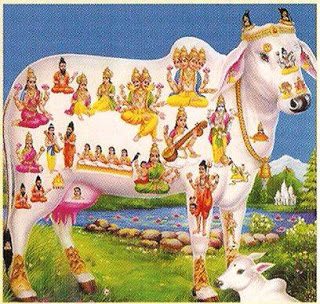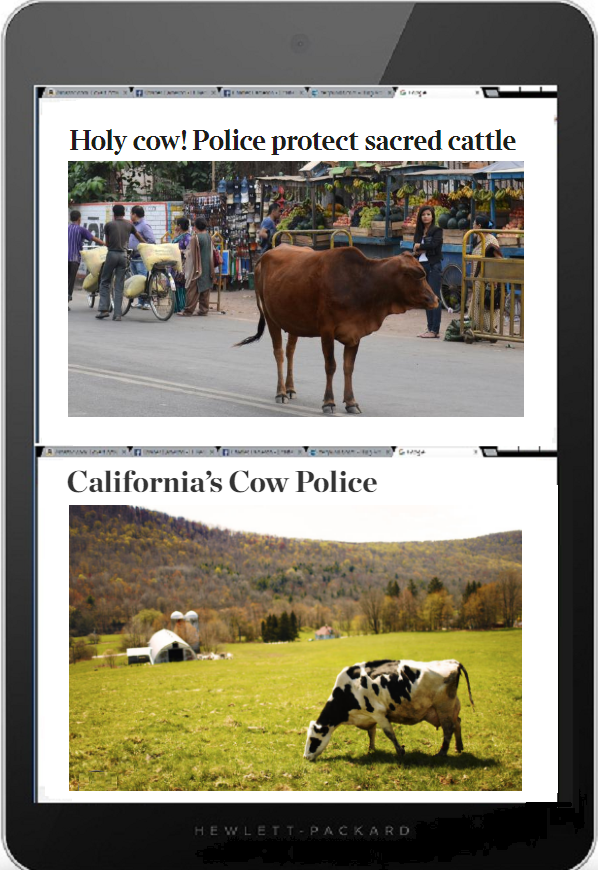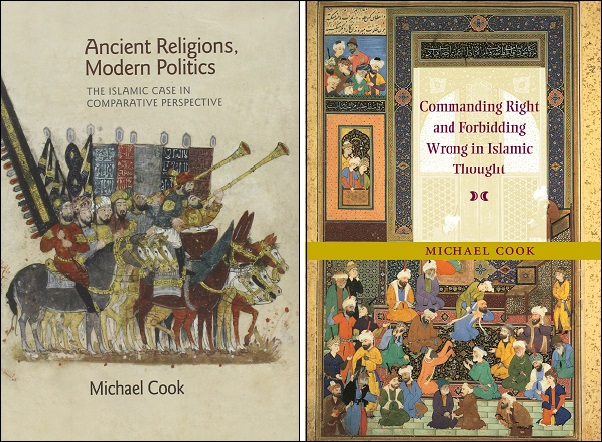[ by Charles Cameron — some unexpected and enlightening juxtapositions ]
.
Three textual DoubleQuotes:
The first, as you’ll see, consists of two brief excerpts from David Ignatius‘ Atlantic piece, How ISIS Spread in the Middle East, which is worth your attention as a follow up to Graeme Wood‘s What ISIS Really Wants, and mentions Soren Kierkegaard , Baywatch and the Bay of Pigs, so what’s not to like?
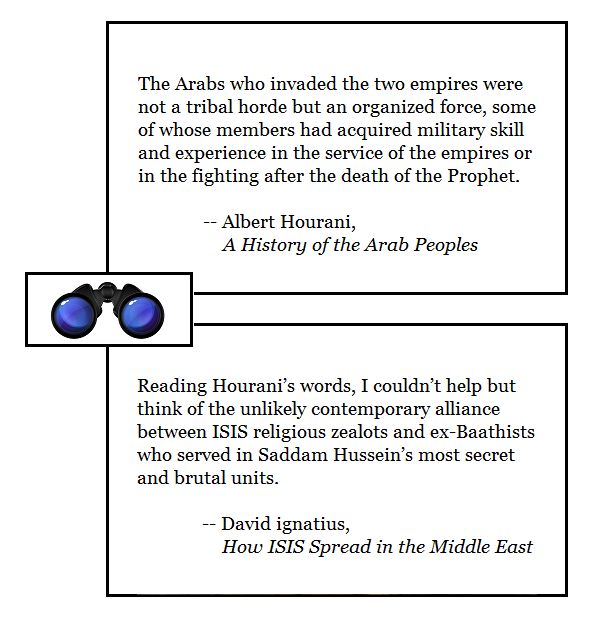
That’s the use of DoubleQuotes-style thinking — comparative, analogical — occurring quite naturally and informatively in a long-form essay.
My second example is quite different, in that it features an interesting article by Clint Watts of FRPI, using the terminology of “near” and “far” enemies first introduced by Abd Al-Salam Faraj, and note the very different use of the same terms in Buddhism.
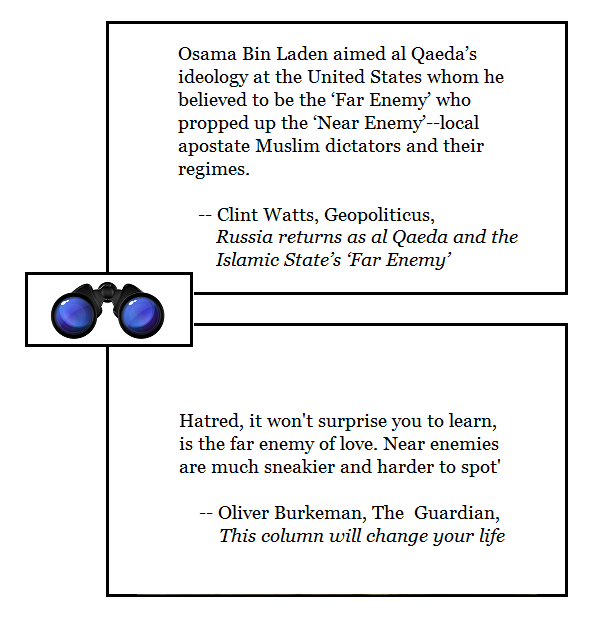
The terms “near” and “far” used to describe enemies in Buddhism represent metaphysical rather than geographical distances — the far enemy is the polar opposite of a given virtue, while the near enemy seems at first glance to be an embodiment of the virtue in question, but is in fact an inauthentic version, to be avoided. The doctrine concerned is expressed in terms of the four Brahma Viharas or highest emotions.
Finally, there has been a lot of talk in recent years about the Islamic term dhimmi, and I was intrigued to run across a very similar concept applied against Muslims in an early Indian discussion of whether India should be partitioned or not:
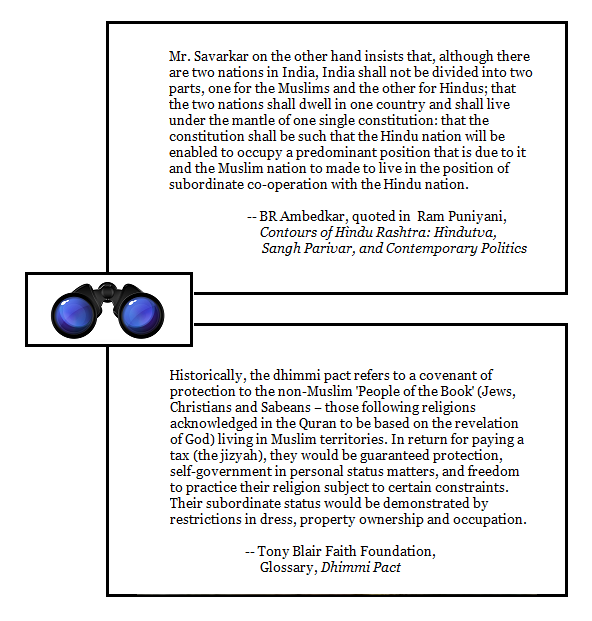
On reflection I realized that all sorts of other groups operate along similar lines. I found this definition — note incidentally the somewhat language-game-changing remark, “A minority is defined not by being outnumbered” — in a Pearson Higher Ed textbook online:
Minority groups are subordinated in terms of power and privilege to the majority, or dominant, group. A minority is defined not by being outnumbered but by five characteristics: unequal treatment, distinguishing physical or cultural traits, involuntary membership, awareness of subordination, and in-group marriage. Subordinate groups are classified in terms of race, ethnicity, religion, and gender. The social importance of race is derived from a process of racial formation; any biological significance is relatively unimportant to society. The theoretical perspectives of functionalism, conflict theory, and labeling offer insights into the sociology of intergroup relations.
Immigration, annexation, and colonialism are processes that may create subordinate groups. Other processes such as extermination and expulsion may remove the presence of a subordinate group. Significant for racial and ethnic oppression in the United States today is the distinction between assimilation and pluralism. Assimilation demands subordinate-group conformity to the dominant group, and pluralism implies mutual respect among diverse groups.
Did you read that? Frankly I’m at a loss to know whether these two paragraphs were intended as black humor, or are simply humorlessness:
Other processes such as extermination and expulsion may remove the presence of a subordinate group.
Hunh?

